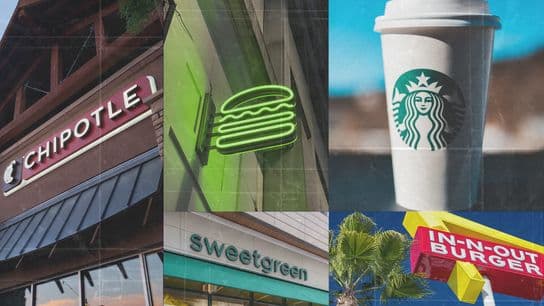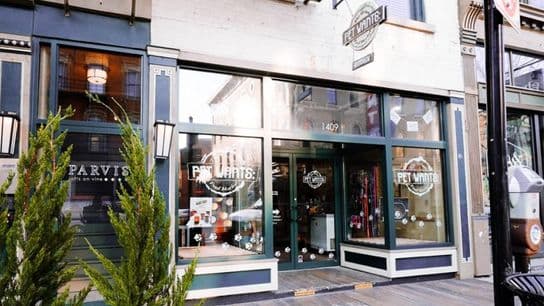What the NLRB’s Recent Rulings Really Mean for the Franchise Business Model
The so-called “joint employer” decision could have broad repercussions for the business world, particularly in franchising.
Walk down just about any Main Street in America, and you’re likely to pass some sort of franchise along the way. The U.S. is now home to 770,000 different franchises that employ more than 8.5 million workers. It’s clear: a significant portion of the American economy is tied to their success. And, like any business model, it’s important that the rights of both franchise employers and franchise employees are protected.
It’s the job of the National Labor Relations Board (NLRB) to define what role employers must play in the process. And, that role is now poised to take a major shift following its ruling last fall that held that companies can be held responsible for labor violations committed by their contractors.
While the ruling from the NLRB specifically deals with the waste management firm Browning-Ferris, the so-called “joint employer” decision could have broad repercussions for the business world, particularly in franchising. Opponents warn the ruling could stifle business growth in a wide variety of industries, from restaurants and retailers to manufacturers, hotels, cleaning services, staffing agencies and beyond.
Just what the repercussions might look like though remains somewhat unclear--and hotly debated. With that in mind, 1851 Franchise asked veteran franchise attorney Lee Plave, of Reston, Virginia based Plave Koch, PLC to weigh in on what’s ahead, and whether the policy shifts the industry could see in 2016 are really what Congress intended.
1851 Franchise: What does the NLRB’s joint employer decision in the Browning-Ferris case mean for franchisors moving forward?
Lee Plave: While on its face, the NLRB decision in Browning-Ferris does not apply to franchisors (in fact, the decision says exactly that), that’s not much comfort. The reason for that is that the conceptual basis on which the Browning-Ferris decision was reached will also be applied to the franchisor-franchisee setting. In fact, the dissenting opinion in Browning-Ferris raised precisely that concern.
However, in October 2015, not long after the Browning-Ferris decision was handed down, Richard Griffin, the NLRB’s General Counsel, spoke at the American Bar Association’s annual franchise law symposium in New Orleans. Richard Weil, head of the Labor Department’s Wage and Hour Division, was also on the same panel. Their dialogue, with Jon Solish and Eric Karp, was constructive and helpful to understanding the concerns that have motivated them to act, thus far.
Mr. Griffin’s remarks were particularly helpful to understanding his office’s concerns, and, possibly, where the NLRB will go with its investigations. In particular, he seemed to focus on software programs used to help schedule the shifts of franchisees’ staffs, and the follow-up process that a franchisor may use to see whether the franchisee adhered to the recommendations that are inherent in the scheduling software. While Mr. Griffin didn’t dismiss other considerations, he emphasized that he would not back away from the “advice memo” that his office issued in an investigation of the Freshii franchise system, where his office concluded that the Freshii franchisor was not the joint employer of its franchisees’ staff.
The investigations conducted by the General Counsel’s staff have focused on facts that have not yet been fully explained to the public. In the hearings that will take place shortly before administrative law judges, the facts on which the General Counsel pins his case will have to be revealed. Once it is possible to review and assess the facts underlying the complaints against McDonald’s, for example, we will be in a better position to assess the short- and long-term risks to franchisors.
1851: With this ruling, some believe changes are already occurring in the perceived relationship between franchisee and franchisor. Will this disrupt the core foundation franchising was built on? If so, how, and what might the long-term impact be?
LP: Once we know the scope of the NLRB’s actions against McDonald’s, and the facts upon which it bases its allegations, we will be better able to assess what--if anything--other franchisors should do to prevent themselves from facing similar legal challenges from the NLRB and private plaintiffs.
Once we know the facts, we may advise our clients to adjust how they conduct their interactions with their franchisees, their franchisees’ staff, and the like. In the meantime, Richard Griffin’s comments at the ABA Forum on Franchising seemed to suggest that actions needed to uphold brand standards would be less troubling than those that directly impact the employer-employee relationship. We will need more discussion and understanding of the NLRB’s concerns before we can tell what changes, if any, are going to be needed.
There are some hints that can be gleaned from Mr. Griffin’s comments to the ABA and in other settings. To the extent that a franchisor may otherwise do so, it would likely make sense not to become involved in setting the terms of employing a franchisees’ staff, hiring and firing of those individuals, their compensation terms, and benefits. The NLRB is responsible for examining the parties that have control over the terms of employment, and it stands to reason that the more deeply involved a franchisor becomes in the terms of employment of its franchisees’ staff, the more likely that the franchisor may face a challenge. While the franchisor may not lose those challenges, some adjustments to previous practices may help to keep the question from arising in the first place.
1851: What does this ruling mean to the sense of a franchisee’s independence from their franchisor?
LP: The Browning-Ferris ruling should have no immediate impact on franchisees’ operations, their independence from their franchisors, or their employment prospects.
1851: Do you believe these policies being implemented are what Congress intended when it shaped current U.S. labor law?
LP: President Franklin Roosevelt signed the National Labor Relations Act (NLRA) in 1935, after Congress passed the law to protect workers’ right to engage in collective bargaining, among other things. The law has been revisited and amended many times since then, as employment conditions and labor practices have evolved. There has always been a political element to enforcement and interpretation of the NLRA, whether in Democratic or Republican administrations.
You’d have to sit down with a bottle of Grey Goose and a Ouija Board to define whether Mr. Griffin’s approach is consistent with the original Congressional intent from 80-plus years ago or the Congressional intent reflected in the more recent amendments, such as the Taft-Hartley Amendments to the NLRA, adopted in the 1940’s and 1950’s.
Given the central role that employment occupies in any society, and also given the essential role played by employers, there will always be some element of tension between employers and employees in any society. In some societies, an equilibrium has been reached on those issues through years of discussion and compromise, yet there are still circumstances under which one side or the other feel as though the balance has tipped against them.
The U.S. has many pressing societal issues in terms of job creation, employment, global competition, income inequality, and the like. While it’s not fair to place the burden upon businesses to solve those knotty problems, it’s also hard to imagine that the problems could be solved without business playing a major role in the process.
1851: What do you believe this ruling might mean for the future of franchising?
LP: While there are somewhat more difficult hurdles associated with the possibility of joint employer classification, franchising is strong enough to get through this challenge intact and still quite viable. Once the community fully understands the nature and scope of where the NLRB may go with the cases that are still at an early stage, franchisors and franchisees will adapt as needed to the changing climate, just as has been the case with other issues.









